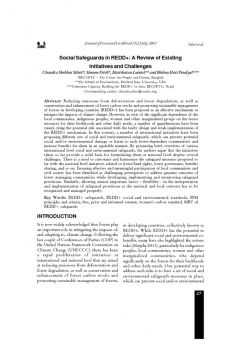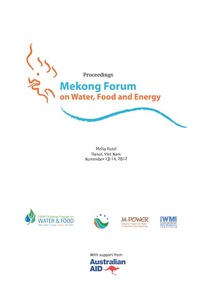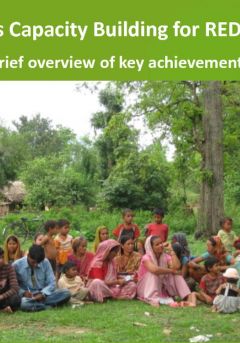Forestry contributes 7-10 percent of Lao
Gross Domestic Product (GDP) and 15-20 percent of
non-agricultural GDP. In rural areas forest exploitation is
one of the few available economic activities, and non-timber
products…
Forestry contributes 7-10 percent of Lao
Gross Domestic Product (GDP) and 15-20 percent of
non-agricultural GDP. In rural areas forest exploitation is
one of the few available economic activities, and non-timber
products…
Reducing emissions from deforestation and forest degradation, as well as conservation and enhancement of forest carbon stocks and promoting sustainable management of forests in developing countries (REDD+) has been proposed as an effective mechanism to mitigate the impacts of climate change.…
Lao PDR's economic outlook remains favorable, with continued strong growth. Gross domestic product (GDP) growth remained at above 7 percent in 2007. Output expanded in mining, newly emerging processing industries, agriculture, and new construction of hydropower projects, tourism and other…
The Lao PDR economy continues to grow, but at a relatively slower pace as the impacts of the global financial turmoil are starting to be felt. Real gross domestic product (GDP) growth is expected to slow in 2008 to about 7 percent as result of the impacts of the global financial crisis. GDP…
Future forest cover changes were simulated under the business-as-usual (BAU), pessimistic and optimistic scenarios using the Markov-cellular automata (MCA) model in Pakxeng district, Lao People’s Democratic Republic (PDR). The Markov chain analysis was used to compute transition probabilities…
This briefing paper is prepared as part of the advocacy of the Asia Indigenous Peoples Pact (AIPP) for the respect, protection and recognition of the human rights of indigenous women. In this paper, we focus on access to justice for indigenous women in Southeast Asia facing development-induced …
This provides an overview of the second Mekong Hydropower Forum held in Hanoi, November 13-15, 2013.
This presentation highlights the key outcomes for Phase I and II and looks ahead towards the objectives and expected outcomes of Phase III of the Norad supported Grassroots Capacity Building for REDD+ in Asia project.
Payments for ecosystem services (PES) provide a market based instrument to motivate changes in land use that degrade ecosystem services. This investigation sought to better understand how effective PES schemes are in meeting the goals of safeguarding ecosystem services, while also …
The author argues that the democratic reform in Myanmar is rooted in profound internal and external factors. Since the beginning of the reform, the changes in Myanmar have taken tolls in a series of China’s existing interests inside the country. Economically, Chinese investments have come under…
This publication presents the first nationwide analysis of land concessions and leases in the Lao PDR. It comes at a pivotal moment after investment in land has expanded significantly throughout the country, sparking increased dialogue and a greater level of scrutiny regarding the impacts of…








